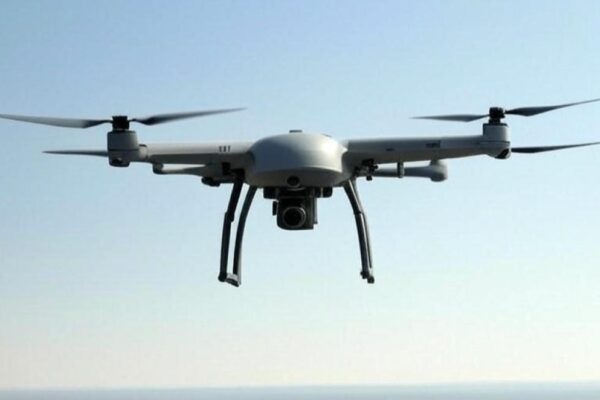
Boko Haram Deploying Armed Drones Nigerian Army Warns
Maiduguri, Nigeria – May 14, 2025 The Nigerian Army has raised concerns over the increasing use of armed drones by Boko Haram insurgents in the North East, describing it as a dangerous shift in tactics that poses significant challenges to national security. Major General Abdulsalam Abubakar, Theatre Commander of Operation Hadin Kai (OPHK), disclosed this development during a press briefing on Tuesday in Maiduguri, Borno State. According to the commander, the terrorist group has begun deploying drones similar to those used in conflict zones such as Israel and Ukraine, which are difficult to detect using conventional radar systems. “The terrorists have changed tactics, resorting to multi-pronged attacks on isolated and vulnerable deployments. They use these attacks as propaganda,” General Abubakar said. “This is why we are reviewing our deployments to counter their evolving strategies.” The army chief warned that insurgents who continue to resist and engage in violence face “certain elimination,” urging them to surrender and emulate those who have already laid down their arms and are being treated humanely. Despite the new threat posed by drone warfare, General Abubakar reassured Nigerians that the troops remain highly motivated, attributing improved morale to enhanced welfare packages instituted by the military leadership. “This shows the seriousness with which the government is tackling this conflict,” he said. “We are confident that in due time, we will achieve complete victory over terrorism.” The Theatre Commander highlighted significant progress in the fight against insurgency, noting that normalcy has largely returned to many parts of the North East compared to five or ten years ago. “In just the past week, over 20 terrorists have been neutralised and several weapons recovered. Operations are ongoing on multiple fronts,” he said, adding that thousands of displaced residents have returned to their communities. “Malam Fatori and Kukawa are recent success stories, with nearly 20,000 IDPs returning to their ancestral homes.” However, General Abubakar acknowledged that insecurity across the wider Sahel region is impacting Nigeria’s counterterrorism efforts. He noted that arms looted from overrun military barracks in neighboring countries are often smuggled into Nigeria through porous borders. “Two years ago, we were on the verge of declaring the conflict over,” he revealed. “But the deterioration in the Sahel has had a direct impact on us. The terrorists have also adapted—thanks in part to the ease with which they access new technology.” He cited the deployment of weaponised drones since November 2024 as a major concern, prompting the military to reassess and reorganize its strategy. “The Chief of Army Staff visited last week and major changes have been implemented. I assumed command just three weeks ago as part of those changes,” he said. General Abubakar confirmed that coordinated attacks were recently launched in Rann, Dikwa, and Gajiram. While most were repelled, the attack on Rann breached military defenses, resulting in the loss of four personnel. Despite the setback, he reaffirmed the military’s determination to end terrorism. “Our resolve remains firm. We will defeat terrorism and restore peace to this region as swiftly as possible. But we need the full support of the nation,” he said. The commander urged Nigerians to grasp the complexity of the mission, noting that the OPHK theatre covers over 150,000 square kilometers—larger than several countries combined. “In asymmetric warfare, as Sun Tzu said, you must separate the fish from the water. Security is a collective responsibility,” he added. As a sign of growing community collaboration, he cited the recent interception of 13,000 litres of petrol being smuggled to terrorist enclaves—a cache capable of powering insurgent operations for a year. “The fight against terrorism cannot be won by the armed forces alone,” he concluded. “We need the cooperation and vigilance of every citizen to overcome this challenge.”

